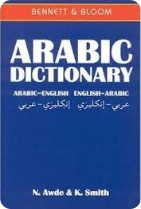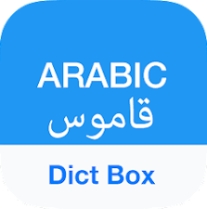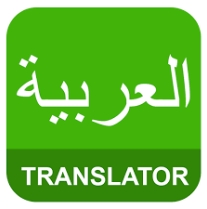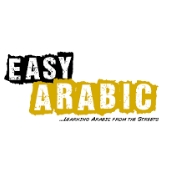
In today’s globalized world, learning a foreign language can drastically change your life, especially when it comes to Arabic.
Being the mother tongue of almost 300 million people in over 25 countries (some politically and economically highly influential), Arabic has become the fourth most powerful language in the world. And as a result, acquiring high Arabic proficiency yields many advantages.
You’ll gain a deep insight into the fascinating culture of multiple places, including Morocco and Lebanon. What’s more, you’ll also have the chance to expand your professional horizons in some of the richest territories in the world, like the United Arab Emirates and Qatar.
The only downside is that Arabic can easily strike fear even into the most confident learners. Because this language has somewhat of an alien-looking alphabet, many students feel intimidated, start pondering their impossibility to become proficient and, without even trying, give up.
But there’s no need to despair. At Language Trainers, we prepared a list of the best Arabic learning resources to help you confidently begin your journey. Keep on reading, and you’ll find it below.
The Ultimate Resource List To Study Arabic
Upon looking at our list, you’ll notice that it is divided into several categories. The reason behind this is actually quite simple. As language learners use various studying approaches, we wanted to make sure these resources fit a variety of studying methodologies.
For this reason, we did not only compile a list of the best Arabic learning tools, but we also sorted them out into sensible sections, including ways to master this language with YouTube, podcasts and alternative teaching methods.
Additionally, we also share the secret to becoming a proficient Arabic speaker faster than you ever imagined. Are you ready to begin your Arabic learning journey, or shall we say هل أنت مستعد للبدء?
Best Blogs/Sites To Learn Arabic
There’s another tool you can use to learn Arabic with the help of a teacher, especially if you’re an avid reader. As you can probably guess, this one will not involve watching tutors. Instead, you’ll have to read lessons on these Arabic teachers’ blogs. And while it might seem a bit boring for some, it’s actually highly entertaining. Just take a look at the following blogs!
- The Arabic Student: Although this blog hasn’t been active for a while, it is still highly useful for beginner students. With the help of short video clips from popular series in various types of Arabic, the author breaks down important phrases and common expression used by locals.
- Arablog: Unlike The Arabic Students, in this blog, you won’t find lessons about Arabic. Instead, its hosts several entries on religion, politics and society that will give you the chance to test your reading skills and better your Arabic abilities.
Best Podcasts To Learn Arabic
But not everyone likes to spend so much time in front of a screen. And we completely understand them. Just think about it, most people study, work or even rest, using their computers, mobile phones, tablets, TV and other technological devices. Let’s say you’re one of these people too. How can you learn languages without looking at these devices? Well, one of the best options is studying Arabic with podcasts and taking your lessons anywhere.
- ArabicPod: This is the perfect podcast for beginners. In addition to focusing on MSA, it hosts over 270 lessons that explore very engaging and useful topics, such as expression to take selfies or how to ask people to add you on social media.
- Arabic in 60 Steps: This is another excellent choice for those starting from scratch. Like ArabicPod, this podcast also teaches MSA, but rather than hosting traditional lessons, it teaches Arabic through tongue twisters, reading Aladdin out loud and other techniques.
- ArabicPod101: One of the most complete Arabic learning podcasts, Arabic Pod101 includes bite-sized lessons for beginner to advanced learners, using all sorts of interactive tools. It might require a paid membership but it is worth it.
Best Exams To Learn Arabic
Exams often suffer from a bad reputation. And why wouldn’t they? Tests, because they tend to cause anxiety and put learners under great pressure. But does that mean tests are bad for studentsa negative influence? Not at all. They actually have very positive effects. In addition to measuring your skills, some language proficiency tests give you access to study and work overseas. If you want enjoy those benefits in Arabic speaking countries, you’ll have to sit for this exam
- Certificat International de Maîtrise en Arabe (CIMA): This is the first internationally-recognized certification that assesses Modern Standard Arabic. It belongs to the Arab World Institute and consists of two exams. CIMA 1 tests the reading, writing, speaking and listening skills of beginner and pre-intermediate students. CIMA 2, on the other hand, measures the same skills but from intermediate and advanced students. In both cases, you’ll have to pay to take them. If you’re interested in taking them, we suggest entering the Arab World Institute official website.
How to Boost Your Arabic Learning Experience?
Is there a secret to becoming proficient in Arabic faster than any other learner? Yes, there is! But then what about all the tools in the list? Aren’t they enough? Does that mean that all the resources above are not useful at all? No, it doesn’t.
All the tools in our list are highly beneficial for language learners who want to acquire an excellent foundation in this language. But to become truly bilingual, you’ll need a bit more help, namely, an expert in Arabic language and culture who can give you personalized lessons, in short, a native-speaking tutor.
Aside from having a mastery of the language, tutors are experts in pedagogy. Therefore, they know exactly how to prepare a specialized Arabic program suited to your needs and goals, how to motivate you and how to keep track of your progress. Now, the question is where can you find those highly qualified native-speaking tutors?
In here! Fortunately for you, at Language Trainers, we specialize in pairing students with language experts. And what’s best, by hiring our services, you’ll have the chance to enjoy classes in the comfort of your home, office or, if you wish, you can also ask for online lessons through Meet, Skype or Zoom.
Make sure to send us a quick inquiry to begin your journey as fast as possible. اراك قريبا!
















